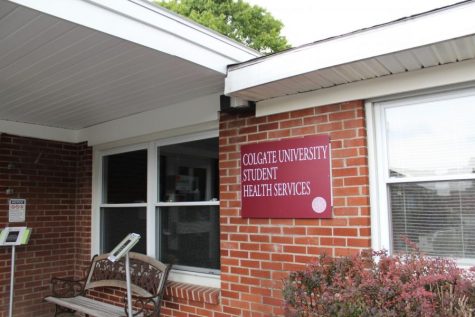Minus the City: Science is Cool
I am currently enrolled in a Psychology course titled “Close Relationships.” I think you can guess what it’s about: the science of relationships, specifically on intimate relationships. Last week I was reading an article for class that kind of blew my mind. I believe most people understand how important good relationships are to our happiness, but have you ever considered their physical health consequences?
The article I read was written by several researchers from universities across the U.S. in psychology, psychiatry, biostatistics, internal medicine and more (Kiecolt-Glaser et al., 2005). They examined healing time and the presence of a specific immune marker known for promoting healing after marital problems. Participants were given blisters using a suction blister device (I know, right? They must have been compensated very well.) in a lab, and following the wound induction, couples engaged in a conversation that was either support or conflict-based. The results indicated that blisters healed more slowly and there were fewer immune markers after the conflict discussion than the support discussion. Participants in relationships that were considered more hostile, no matter the conversation type, had blisters that healed significantly slower. Wild, right?!
In another article I read for class, psychologists Richard Slatcher, Emre Selcuk and Anthony Ong studied the effect of perceived partner responsiveness (PPP) on cortisol levels. PPP refers to one’s belief that their partner understands, accepts and cares about them, and it is key for a healthy and happy relationship. Additionally, cortisol levels are implicated in learning, memory, immune system support and more. Steeper cortisol slopes from waking to bedtime are considered healthier. The researchers found that participants in relationships characterized as having greater PPP had higher cortisol levels at waking and bedtime. Essentially, PPP was associated with better health.
I decided to do some outside research following last week’s class. In another study by Carl Charnetski and Francis Brennan, participants rated at what frequency couples had sex and researchers collected saliva samples to test for an immunoglobulin that helps the human body fight against the common cold. They found that couples who had sex frequently (1-2 times per week) had greater production of this immunoglobulin than those who had sex less or more frequently. I guess there is a sweet spot (ba-dum-tss).
It’s not just romantic relationships that are important for health indicators. In another study by Ronald Glaser and other psychologists, researchers looked at participants immune responses to three injections of the Hepatitis B vaccine. Those who reported having greater social support had a stronger immune response to the vaccine.
Overall, the impact of relationships on our health and longevity is quite large. The quality of our relationships actually has a greater effect on mortality than smoking 15 cigarettes a day, having a high BMI, excessive daily alcohol consumption or air pollution according to a study by Holt-Lunstad, Smith and Layton from 2010. Of course, there are methodological shortcomings to every study that may impact how much we can read into the results generated. Everyone should critically read and analyze all the studies and reports they read, whether it be on the science of relationships, or something in geography or biology or economics. I just have to say, science is cool, isn’t it?!
Contact Kira Palmer at [email protected].








